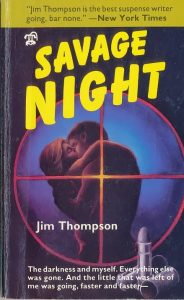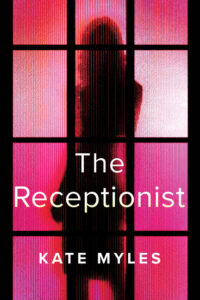Carol and Charlie were my upstairs neighbors. They were an older couple, sliver-haired and retired, always around on weekdays. I registered them as vaguely eccentric but sweet, complete opposites from one another. Carol was gregarious. She was always smiling, always generous, delivering packages from the lobby to our apartment doors and feeding a feral cat on our block. I met her as I was moving into my now-husband’s place. She seemed delighted to have me in the building, peppering me with personal questions like some cheerfully nosy aunt, welcoming me to the family.
Charlie was quieter, inconspicuous. I don’t remember much about him except that he wore hats.
Well, one night I came home from working late to find my street blocked off to traffic. The front of my building was swarming with reporters and FBI trucks. It turns out Charlie and Carol were actually Whitey Bulger, the notorious mobster and all-around horrible human, and his moll, Catherine Greig. Can you believe it? I was living next to monsters and had no idea.
I’ve always had trouble reconciling the fact that awful people don’t announce themselves as such, that they’re just as complex as the rest of us. I liked “Carol.” I knew her only in passing, not enough to feel betrayed, but still—I think about her. Was her kindness genuine? Some sort of penance? Did she do any mental gymnastics to justify staying with a man who’d murdered scores of people, who’d strangled a twenty-five year old woman with his bare hands? Or was she cool with it? The details, if you spend time on them, are horrific. Catherine ultimately served eight years in jail. Whitey came to his own violent end, beaten to death in prison.
There are no heroes in the tale of “Carol” and “Charlie,” especially not if you’re looking at it from their point-of-view. There’s no redemption arc, no learning from mistakes, no one to root for. Even so, I believe stories like theirs are worth telling. Because not everyone learns from their mistakes. Not everyone becomes a better person. This is part of the human experience.
Luckily, there’s a literary tradition built to catch these fallen souls whose failings offer no instruction, who don’t even provide catharsis. Welcome to noir. I’m talking about the bleakest noir, where you hear directly from the wretched. The sinners. The unfiltered narrative of villains sinking in the mire of their terrible decisions.
The bleakest noir is about downfall. But where classical tragedy has Oedipus the King tumbling from mythic heights, the noir protagonist stumbles from the moral equivalent of a step stool. Frank Chambers of the standard-bearer, The Postman Always Rings Twice, is a drifter when we meet him. Driven by love or lust, he quickly assents to planning the bludgeoning murder of his lover’s husband. He bungles the few opportunities he has to turn things around, to put his transgressions behind him, and ends up speaking to us from death row.
The noir protagonist is the tragic hero’s nihilist cousin: smaller, meaner, a story arc squished under the brutal weight of realism.
But do we actually need these stories? Is there a point to them? I’d argue yes, but not because the answer is neat and tidy. Chloe, the title character of my book, The Receptionist, is volatile from the outset. She wants desperately to get her life together but is too damaged, too ill equipped to navigate the predator-infested waters of 21st century Los Angeles. Her escalating offenses make her impossible to like or identify with. Yet the noir tradition asks that we not turn away.
It’s a question of how we deal with gross transgression. The common solution is separation: removing unsalvageable criminals from the community through exile, jail. We define the unmanageable, the destructive, in our lives with words like ‘sociopath’ and ‘narcissist’—a shorthand that allows a clean break, lets us move on. I’m not suggesting this is an incorrect way of doing things, or that victims should sympathize with their perpetrators. But noir demands that we consider the problem of the irredeemable. Sometimes it provides context, considering the interplay of the individual and environment. Sometimes it’s just about accompanying transgressors to hell. But always, noir asks us to stop for a moment, within the safe confines of the written word, and bear witness to their humanity.
Here are four novels that accomplish this:

Savage Night by Jim Thompson
Carl Bigelow is a professional killer coerced from retirement by a mysterious boss figure known as The Man. Carl doesn’t want the job – a months-long contract requiring him to blend in as a fresh-faced, small-town college student. But his past has fated him to it. He resigns himself to the fact that likely won’t survive the gig. The Man is a famous double-crosser, and Carl is suffering a recurrence of Tuberculosis, his body weakening, betraying him. As he goes through the motions of plotting the murder and seducing an unreliable accomplice, he embarks on a halting descent into the surreal. It’s the only place for him to go. He’s doomed, and he knows it. After a disturbing encounter with The Man, his notorious temper takes the form of heat-seeking madness. It’s psychopathy in action as he pushes through crowds in New York City, casting those around him into two-dimensional caricatures. Then when he’s most vulnerable, most fearful, we delve into his mind as it fractures. The violence of his world, the things he’s done, that are done to him, are beyond meaning, beyond sense. He is reduced to symbol, image, horror.

The Outsider by Richard Wright
A 1950s era Black man, Cross Damon’s potential has been circumscribed by racism and oppression, some of it direct, some filtered down through the generations. When we meet him he’s working the graveyard shift at the post office, and been kicked from the home of his wife and sons. A Greek chorus of coworkers informs us that Cross had once surrounded himself with books but has since given them up. In a gift to the reader, however, Cross maintains his restless, roving intellect. It wraps itself around every situation, every personality he meets. From anatomizing his cruel manipulations of his wife to his sly take on assorted con men, communists and politicians, Cross’s observations are stunning. Even as the bodies pile up, there’s a part of himself that’s disinterested, an outsider, expertly guiding the reader toward noir’s underlying questions around the meaning of life.

Miami Purity by Vicki Hendricks
Noir isn’t just a man’s world. After killing her abusive husband, topless dancer Sherri Parlay wants to turn over new leaf. She quits dancing and takes a job at a dry cleaner’s, aiming to piece together a new existence away from the chaos of her old life. Often heralded as the female Frank Chambers, Sherri leads with desire. We don’t delve into her thoughts so much as plunge into her body, lurching along as her compulsions for sex and drink take over. She embarks on a wild affair with Payne, her boss at the cleaner’s—a grown man trapped in his own abusive relationship with his mother—and the shocks mount. Of course, it all ends badly, violently, because Sherri was never going to settle down into a quiet life. She doesn’t have the wherewithal to steer clear of messed up situations. Her life hurtles forward, downward with no time to gain wisdom.

You Will Know Me by Megan Abbott
Not all noir is about down-and-outers. Excellence takes center stage as Katie Knox and her husband sacrifice everything for their teenaged daughter Devon’s dream of becoming an elite gymnast. There are no fatal flaws, no compulsions, to drag our heroes down. Those were vanquished long before the start of the narrative. The world of elite gymnasts is about working harder, soaring higher, and Katie plays the role of sports mom to a tee, with only vague hints of ambivalence creeping around the edges of her conscience. A hit-and-run accident rallies the community’s most self-interested instincts. Katie, in an effort to protect Devon, ultimately throws in with them, sacrificing her daughter’s soul on the altar of achievement. And that’s how it ends. Katie’s daughter is saved inside a shellacked, hardened world with nothing left to worship but perfection—the absence of humanity.
To me, this is quite possibly the bleakest noir of all.
***


















